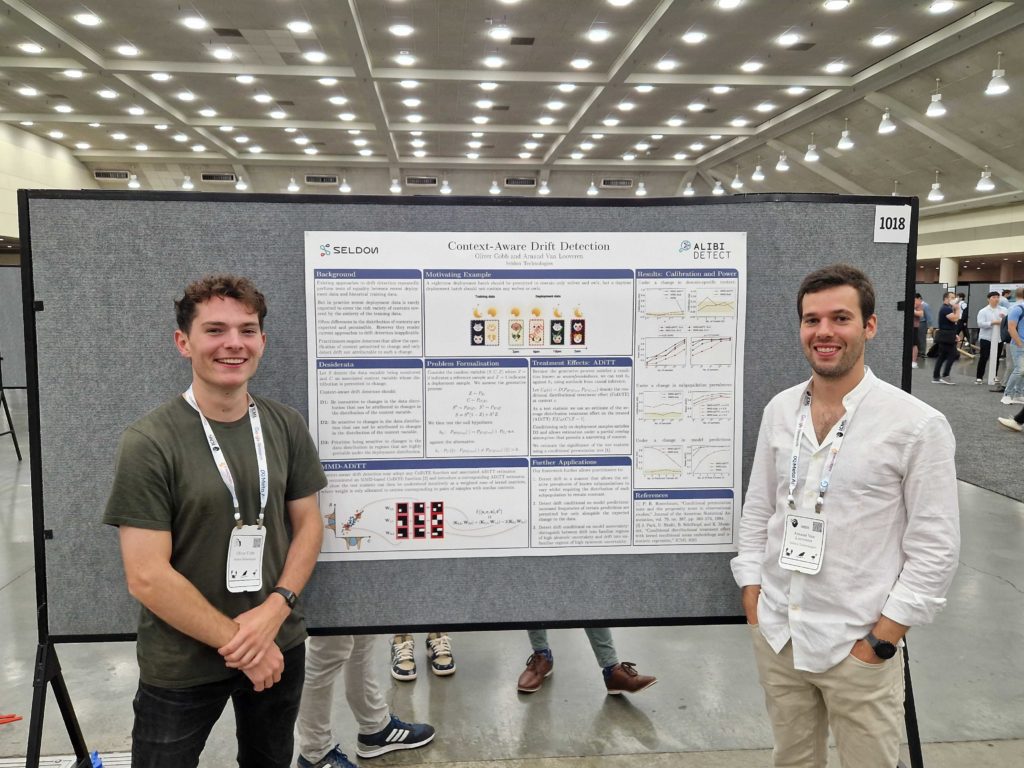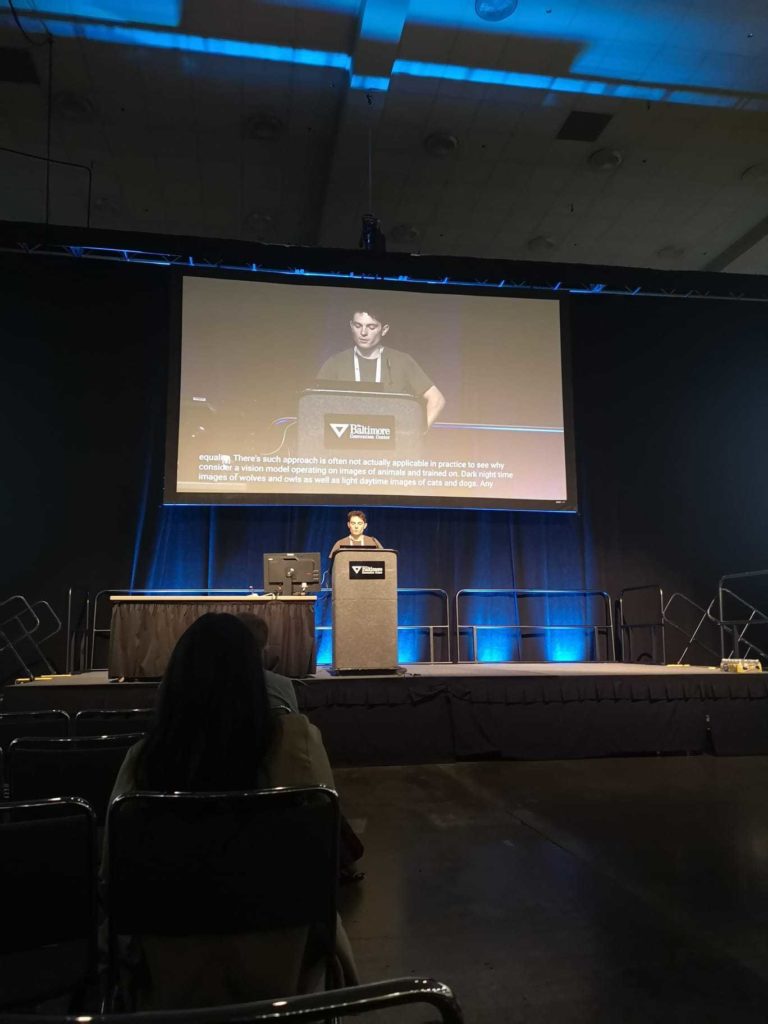In my role as part of the R&D team here at Seldon, I conduct research that enables greater trust in machine learning (ML) systems. Our findings are then integrated into Seldon’s open source Python library, Alibi Detect. Last week, we attended the 2022 International Conference on Machine Learning (ICML) in Baltimore, U.S. The convention is one of the leading international academic conferences in ML and AI and is now in its 39th iteration since initiating in 1980. Our work was being published at ICML for the very first time at the event and it was a real honour to give back to the wider AI and ML community.
Attending ICML
The application process involved a rigorous review process before Arnaud Van Looveren, our VP of Data Science Research, and I presented our research in the form of a spotlight talk, followed by more detailed discussions in the form of an interactive poster session. It was great to share our findings and get up to speed with fellow academics’ work. ICML is known for fostering a great spirit of collaboration among the ML community and it really showed.

Seldon’s place on stage at ICML certifies the quality and rigour of the research being done at our company. Ultimately we are motivated and driven by our customers’ needs, and so to have our research published by ICML is a real stamp of approval. Our R&D team exists to deliver trust in ML models for end-users, and our mission is to help solve real-world problems with ML.
A Deep Dive into the Research
Our research focused on developing practical methods for detecting drift, which is essentially when the environment of a deployed ML model deviates from the one in which it was trained. In particular, we developed a new “context-aware” framework for drift detection which allows practitioners the flexibility to specify which changes in their environment should – and should not – be identified as drift. Included was an empirical study demonstrating the effectiveness of the framework for various drift detection problems. For example, we looked at detecting drift in the distributions underlying subpopulations of data in a way that is insensitive to their respective prevalences.

Being at ICML isn’t something that R&D teams get to do very often, and both being on stage presenting and hanging out backstage where we could meet fellow researchers were two definite highlights of the trip. Sometimes we can be very laser-focused on our particular area of research, so it was great to be able to step back and see a broader view of the wider ML field for the week.
The Future of Seldon’s Research and Development
In terms of what’s next for Seldon’s R&D and data science teams, we’re continuing to look at drift detection and are keen to build on our initial research as we believe there are various future applications for the framework we have developed. In turn, this will continue to better inform our open source library Alibi Detect, which can then be leveraged by our engineering team when building out our enterprise product, Seldon Deploy.
To learn more about what it’s like to work as part of our R&D or Data Science teams, visit our careers page.